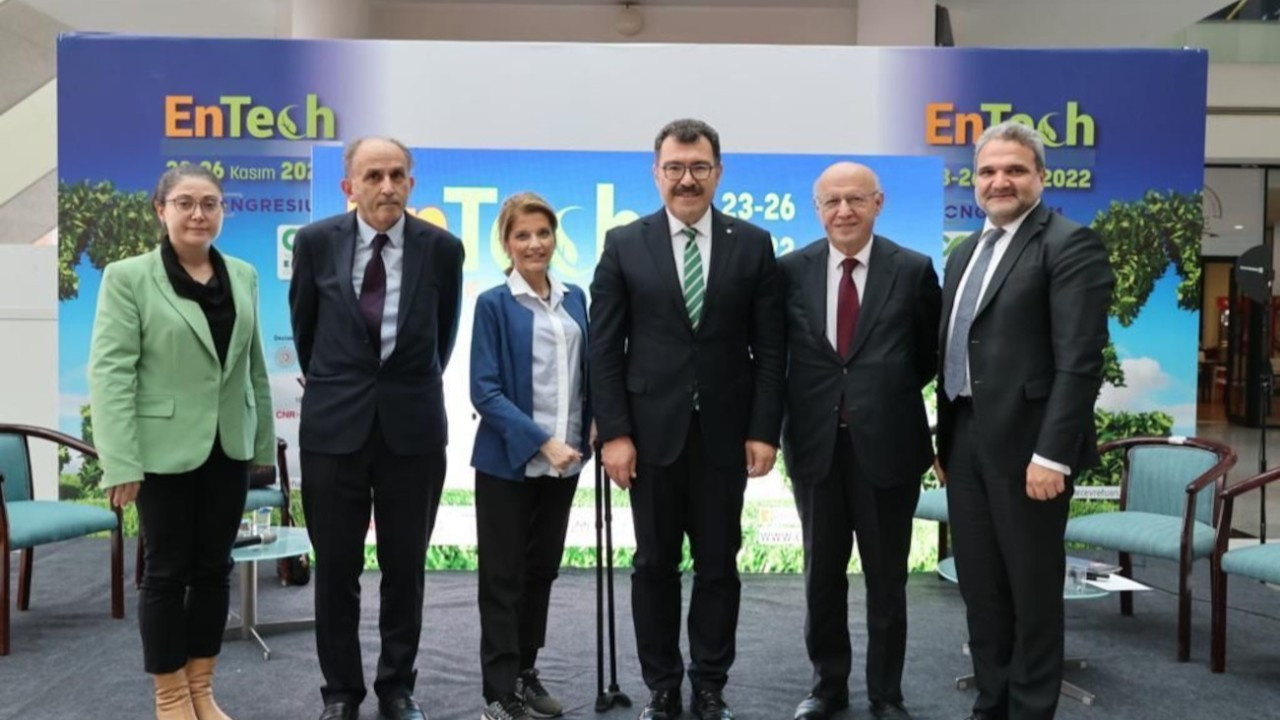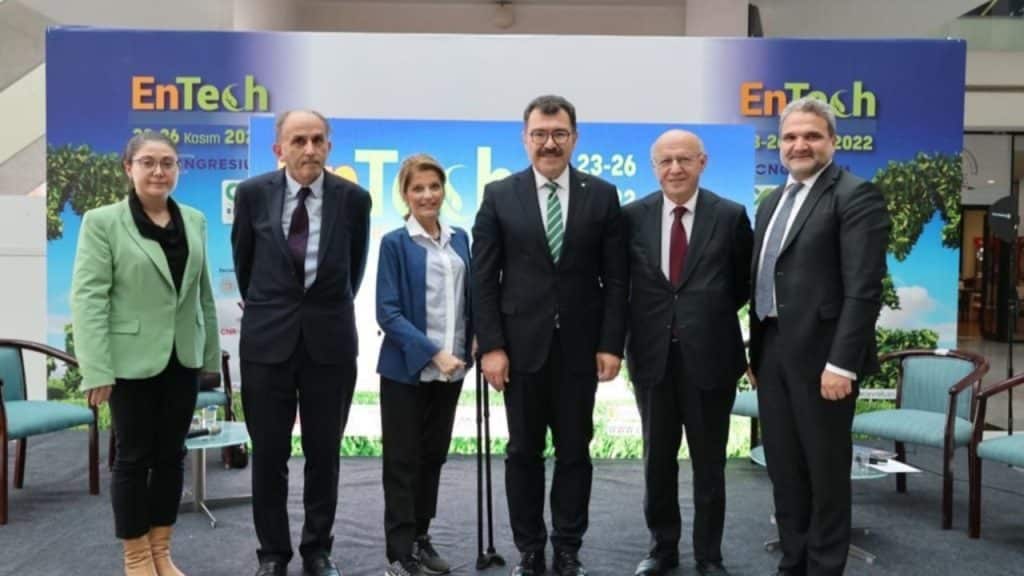
The panel themed “Science and Technology Based Green Growth” organized within the scope of EnTech Sustainability and Zero Waste Fair was held in Ankara. TUBITAK President Prof. Dr. As a speaker at the panel moderated by Hasan Mandal, Turkish Steel Producers Association (TÇÜD) Secretary General Dr. Veysel Yayan, CEO of Turkish Cement Industrialists’ Association (TÜRKÇİMENTO) Volkan Bozay, Member of Turkish Chemical Industrialists Association (TKSD) Board of Directors and European Chemical Industries Council (CEFIC) Technical Committee Member Dr. Derya Erçıkan, Director of Boğaziçi University Sustainable Development and Cleaner Production Center Prof. Dr. Nilgün Cılız, Head of TÜBİTAK Science, Technology and Innovation Policies Department Hande Alpaslan. TÜRKÇİMENTO CEO Volkan Bozay, who spoke at the panel where “Technology-Oriented General Situation of the Industry on Green Transformation” was discussed, emphasized that cement production requires intense energy and said, “Today, 85% of cement production costs are energy costs. It is seen that the types of energy used are electrical energy and fuel use for thermal energy. In addition, the cement sector is responsible for 6-8% of the total emissions in terms of carbon emissions. Stating that the cement industry has started to increase the use of alternative fuels for emission reduction over the years, Bozay said: “As of 2022, there are 25 WHR systems (recovery from waste heat) in 16 different factories in Turkey. Cement factories produce up to 25% of the electricity they need using their own heat. In addition, electrical energy, which corresponds to the daily consumption of 570,000 households, can only be met with waste heat from the process. The cement sector is evolving from an energy consuming sector to an energy producing sector. We would also like to state that we anticipate that the sectoral initiatives we have made regarding the obstacles related to the legislation will find a great response, and this will further increase the plant investments to be put into operation.”
“R&D projects should be supported more by TUBITAK”
Volkan Bozay, who stated that the carbon emission originating from clinker production of the sector will decrease as the clinker used in cement decreases, said, “Our industry continues by diversifying its R&D activities in order to both reduce the clinker rate that causes high emissions in cement and to develop alternative binders with lower carbon. In this context, we attach great importance to the university-industry relationship. In addition, we expect such projects to be supported more, especially by TUBITAK.” Drawing attention to the need to strengthen the technological infrastructure for the storage of this energy, considering that renewable energy sources are used more efficiently and the electricity produced from these sources is not continuous, Bozay stated that TÜRKÇİMENTO closely follows the developments in this area. Bozay said, “Because we have the status of an Association as an Association, we cannot take part in TÜBİTAK projects as an executive or partner. We want to contribute to the projects in question by taking part in the project issues that are important for our country, with the arrangements that can be made in this regard,” he said.

